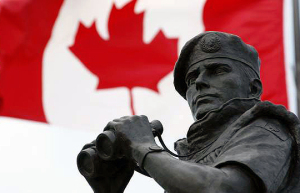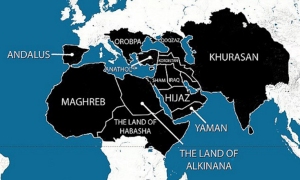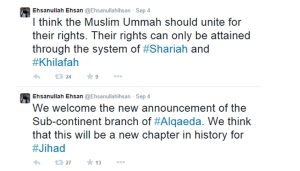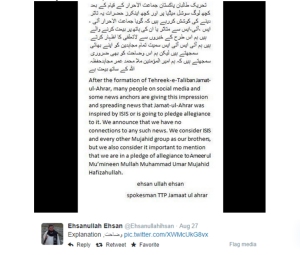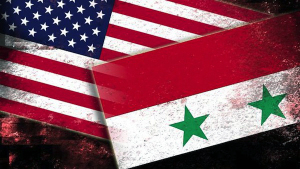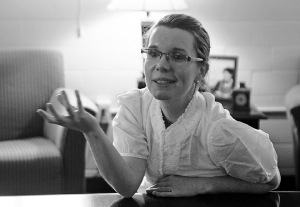By Zachary Wolfraim:
In light of this week’s horrible attacks in Ottawa and St-Jean-sur-Richelieu there has been some commentary in the Canadian media declaring that this would not change Canada. The international media have suggested that Canada has lost its innocence but that reflects a lack of insight into evolving Canadian politics. While the importance of homegrown, lone-wolf style terrorism should not be underestimated, in the grand sweep of attacks plotted against Canadians this is by no means an outlier. Nonetheless, the fact that an armed person intent on killing managed to rush into the Canadian parliament and lock down the centre of Ottawa has triggered some introspection among Canadians. The question is, which Canada are observers talking about when they are discussing Canada? The internal narratives from Canadians seem uncritical while the international observations about Canada are outdated. The Canada of 2014 is not the same idealized Canada that many people seem to remember.
Since taking power in 2006 the Conservative Harper government has sought to gradually change Canada’s internal politics and redefine Canada’s international image. This has been arguably most dramatic at the international level ranging from minor things such as ensuring that portraits of the Queen hang in every embassy and re-instating the “Royal” back in the Canadian Navy and the Air Force. Of course, there are much bigger issues such as the Harper government’s unwavering and vocal support of Israel. Canada’s transactional view of multilateral forums such as the UN and NATO has not gone unnoticed in foreign capitals. Moreover, while bullhorn diplomacy such as Foreign Minister John Baird’s loud pronouncements on Russia, Iran or Gaza gets headlines in Canada, it has marginal impact on world affairs.
Canada’s military has also been active over the past few years. The Canadian Forces contribution to Afghanistan was significant between 2001 and 2011, as were its casualties. Canada also contributed fighter aircraft to NATO’s Libya campaign in 2011 and is now offering a similar contribution to the multinational coalition against ISIS/L in Iraq. Indeed, while many hark back to the ‘Canada-as-peacekeeper’ myth, it is well established that Canada has not really cultivated this significantly since the early 1990s.[i] The problem with this is that Canada’s current foreign policy is not coupled with any coherent diplomatic strategy and ultimately, this has diminished Canada’s influence in the world.
The current mission that Canada has undertaken in Iraq is an excellent example of this problem. While the international community should take action against IS, and Canada should be involved, realistically its contribution is token: six F-18s and support aircraft will not turn the tide of the conflict. Canada’s relationship with the UN and NATO remain strained and its international diplomatic efforts, to say nothing of its international development efforts, are a shadow of what they once were. Whichever party wins the federal election in 2015 needs to offer some clear leadership and vision for Canadian foreign policy and rebuild the country’s diplomatic depth. Similarly, Canadians need to decide on the domestic vision of Canada that they want to support.
This is not to say that Canada is not still a desirable or attractive place to live; however, the shift in Canada’s politics is gradually changing the country, a trend that has been noticed and come under increasing scrutiny. So the question remains – when it’s said that ‘terrorism will not change Canada’, which Canada is being referred to? If anything, during this time of reflection and prior to an election year, each of the main political party leaders would do well to craft and articulate a distinct vision of the Canada they want to build. Critically, they also need to avoid parochialism and articulate a clear vision of where they regard Canada’s place in the world.
The spectre of terrorism has loomed over Canada and the Western world for some time and will continue to do so for the foreseeable future. That being said, the recent attacks are not necessarily an indictment of Canadian foreign policy or the current government but rather seem to be tragic, largely unpredictable events. The current state of world affairs is uncertain and it is naive for Canadians or international observers to think that Canada is a “fireproof house far from inflammable materials.”[ii] Ultimately, Canada – like the world – has changed, and Canadians must see these two things are interrelated. This is neither a call for a ‘return’ to the Canada of the past nor for knee-jerk patriotism with affirmations of resilience and strength. Instead, it is to urge Canadians to channel their introspective impulses in the wake of tragedy to work to constructive ends and use this opportunity to redefine the key tenets that Canada represents and for which it stands.
__________________
Zachary Wolfraim is a PhD researcher in the Department of War Studies, King’s College London, where he focuses on the role of narratives in shaping foreign policy in relation to NATO operations. He previously worked as a consultant in NATO Headquarters on operations in Afghanistan, Iraq and Libya. You can follow him on Twitter @ZachWol.
NOTES
[i] Canada currently has a total of 21 peacekeeping troops participating in UN missions, fewer than the United States.
[ii] From Canadian Senator Raoul Dandurand’s 1927 speech to the League of Nations, quoted in C.P. Stacey, Canada and the Age of Conflict. 2: The Mackenzie King Era, Toronto: University of Toronto Press, 1981.
